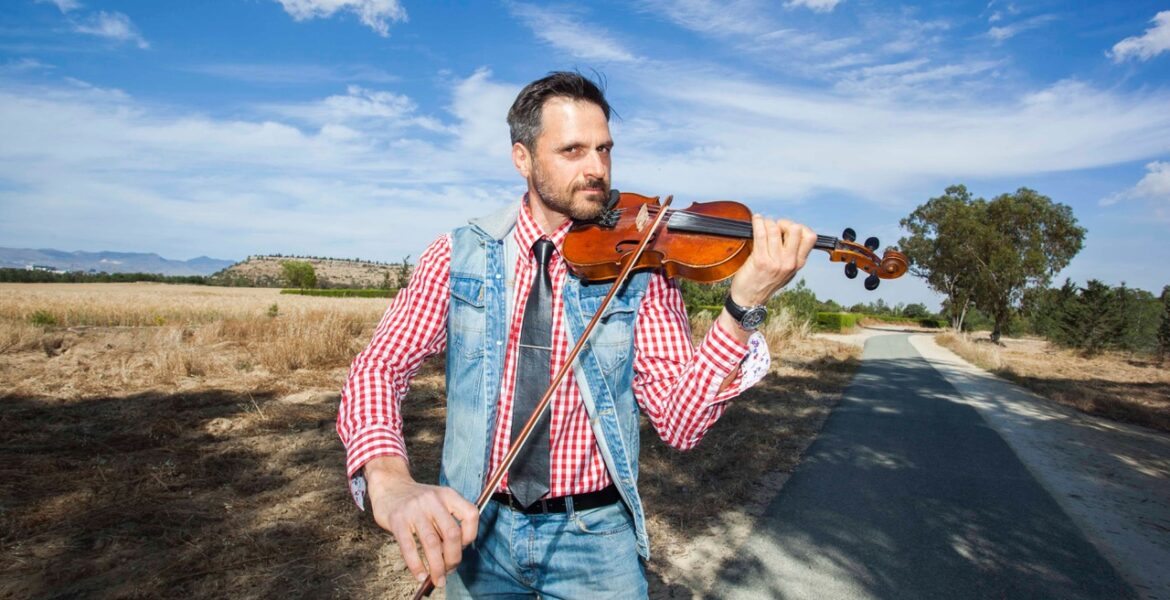For acclaimed composer, songwriter, lyricist, musician Costas Cacoyannis, falling in love with the piano at the age of five created a magical doorway into a musical world of imagination and creation.
Referred to by the BBC as a ‘one man orchestra’, Cacoyannis holds diplomas in piano, flute, violin, and teaching and has a degree in Electrical Engineering. After winning a Fulbright scholarship, he went to the United States for studies in theory, film scoring and composition at the Eastman School of Music.
His music has been performed in major theatres and halls around the world including the Kremlin Palace, the Acropolis Herodion, the Bloomsbury and Her Majesty’s in London's West End, the Haus der Kulturen in Germany and the Megaro Mousikis in Athens.
It seems that Cacoyannis was always destined for musical greatness. He is a relative of the great Michael Cacoyannis, director of major Hollywood movies such as ‘Zorba the Greek’ and ‘The Trojan Women’, with whom he has collaborated as a composer, describing Michael as his closest friend and mentor.
Cacoyannis has also collaborated as a composer with the singers Nana Mouskouri, George Dalaras, Michalis Hadjiyannis, Yannis Kotsiras, Kalliopi Vetta, Alexia, Johnny Logan, and choreographer Dimitris Papaioannou.
He has composed the music for 3 ballets, 15 theatrical productions, 15 TV series, 8 motion pictures and 20 CD's. In 2008 he was elected as musical director and composer for the junior Eurovision song contest.
“The melody is honestly a gift from nature, it doesn’t come from me….I need nature to compose.”
Costas Cacoyannis, whose creative genius is greatly inspired by nature, whether by the trill of a bird or picturesque scenes such as the manner by which one mountain hugs another, has lived on Troodos Mountain in Lemithou village, Cyprus since 2004.
It was here that he founded Parakentro, a non - profit cultural centre and publishing house with poet Pambos Kouzalis.
Located at an altitude of 1,200 metres, the Parakentro centre encompasses a 19th century stone building and features an open-air stage, a video and graphics editing lab as well as a recording studio – perfect for recording his compositions, playing all of the varied musical instruments himself in an ingeniously talented one man show.
Costas has directed a series of documentary films and in 2008 was awarded the 1st prize at the Drama International Short Film festival of Greece for his film "Transcendence".
Since March 2010 he has appeared on National TV as a judge on the Talent Show ‘Performance’, the winner of which will represent Cyprus on the Eurovision 2011 song contest.
Today in Cyprus, Cacoyannis’s work is everywhere. One can barely go to the cinemas or switch on the TV without hearing his music.
Greek City Times was recently very fortunate to be able to speak to this incredibly interesting, talented yet unbelievably humble man, to learn more about his fascinating journey to becoming one of Cyprus’s most prolific composers.
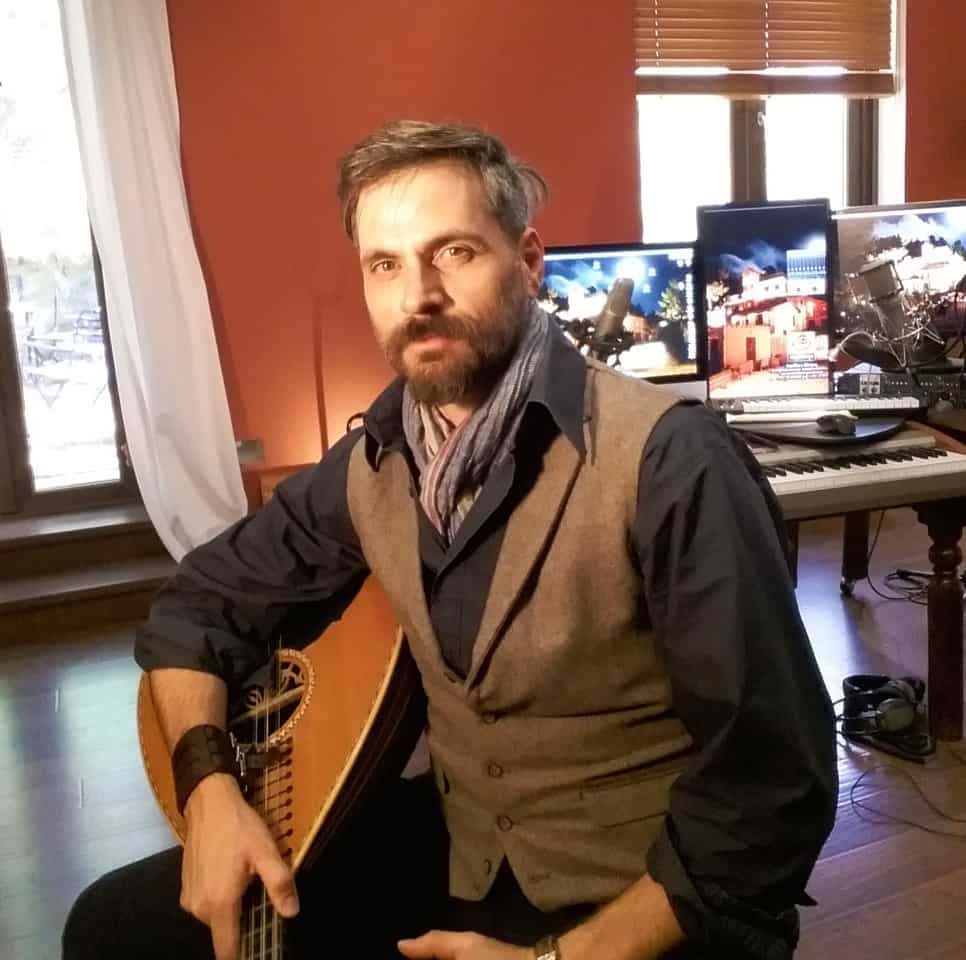
Musical Talent and Background
At what age did you discover music? Did any particular person/ people play a role in inspiring you?
I was five when my parents bought a piano for Irene, my older sister. It was an old, reconditioned, and tall instrument. I literally fell in love with it! Discovering the magic of sound and harmony initiated me to a world of imagination and creation. Both my parents were impressed by my first “compositions” so they let me start lessons together with Irene.
You have a degree in electronic engineering – does this have any synergies with music? How and why did you decide to study this?
From a very early age I was inclined to both computer programing and electronics. I used to “invent” electronic gadgets to aid me in my quest for music creation and spend most of my free time programming computer games. Actually, two of them were published in England before I was 16.
Thus, the decision to follow engineering was something expected from me. Although it was never pursued as a profession, it did help me expand my musical horizon to paths that were quite new.
When was it that you realised that music would become your profession?
When a producer, to my ignorance, was introduced to my compositions by a colleague of mine. He invited me to his office and offered to organise an electronic music show, featuring my music, in the fashion of Vangelis and Jean Michel Jarre.
I was only nineteen, yet he arranged a very impressive and well publicised event with me performing a “one man show” up on a platform surrounded by dozens of synthesisers, computers and keyboards. We had some important artists and a choir as guests.
That was a first of a kind in Cyprus, and the success of the project made me believe in my talent more. A year later I was offered a Fulbright scholarship for studies in composition in the US and thus it eventually became my profession.
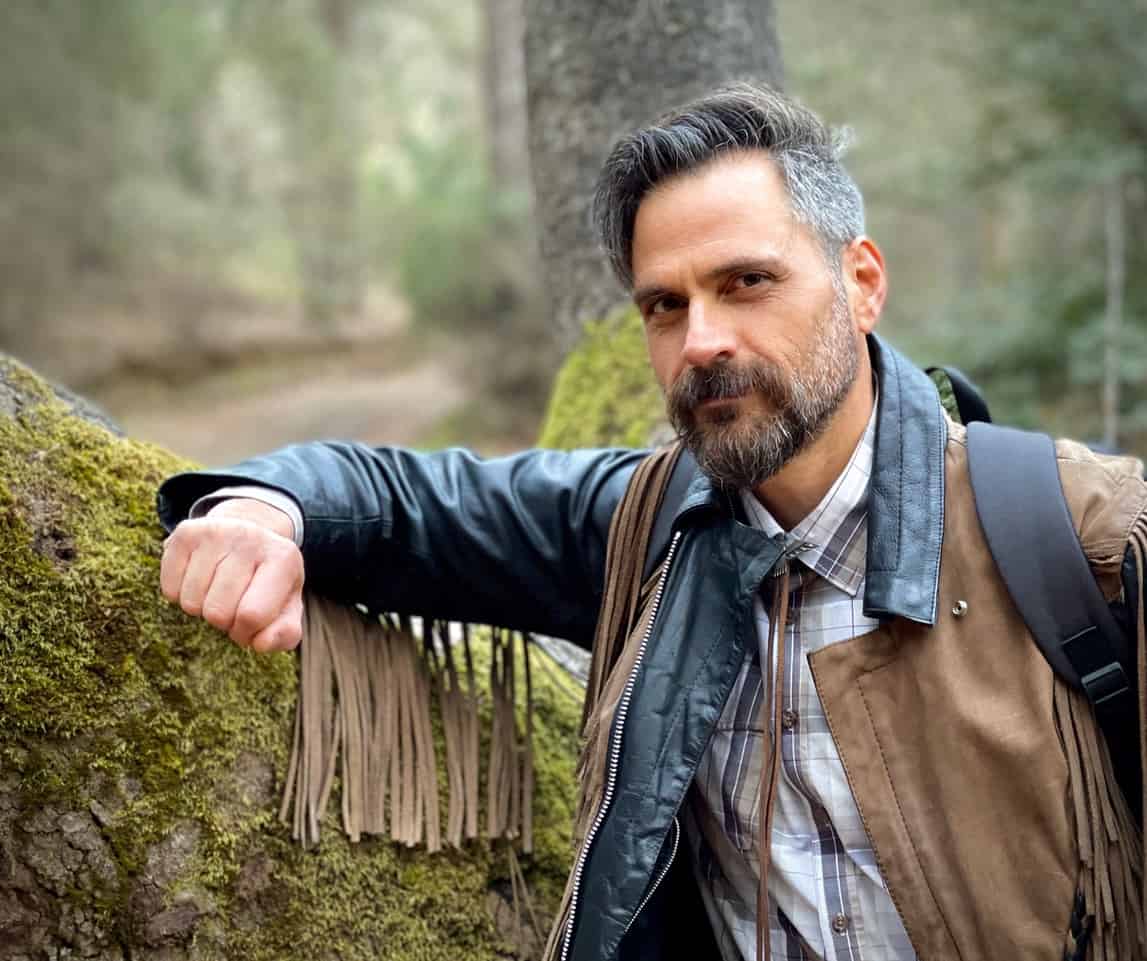
Let’s talk about natural versus innate musical talent. You studied film scoring and composition but to what degree do you think that composition can be taught? How much of composing is a natural talent that you either have or you don’t.
During my studies in in the US, I was lucky enough to have some great teachers such as the twice Pulitzer Prize winner Christopher Rousse. He believed being a creator is a need you are born with, strong and basic like the need for oxygen and food and thus to a great extent cannot be taught, only perfected through work and teaching.
I totally agree with his ideas and feel lucky that he believed in my music and gifted me with encouragement to believe in it too.
Some people spend their entire life trying to master one instrument. How do you even begin to master all of the instruments that you are able to play?
From an early age, I have always been curious and easily fell in love with the sound of instruments when I listened to them for the first time.
I was eight when my parents took me to a violin concert. I literally fell in love with the instrument so a few months later I began violin lessons.
By the age of nine I also began guitar lessons.
I was eleven when I listened to the flute for the first time and convincing my parents to buy me one became an obsession. I really had to work hard to persuade them but finally they agreed.
Unfortunately, there was no teacher in our town at that time so I had to discover how to play it myself. I struggled but managed to get my diploma four years later.
After studying these instruments, it was quite easy to conquer the rest, so from the violin I easily jumped to the cello, the viola, and the double bass and from the flute to the clarinet and the oboe.
At a later age I became obsessed with traditional instruments like the lute, baglamas, bouzouki and conquered those as well.
From then on, I learned new instruments whenever I needed their colour for my soundtracks. The duduk, the accordion, the bass flute and the concertina were such instruments.
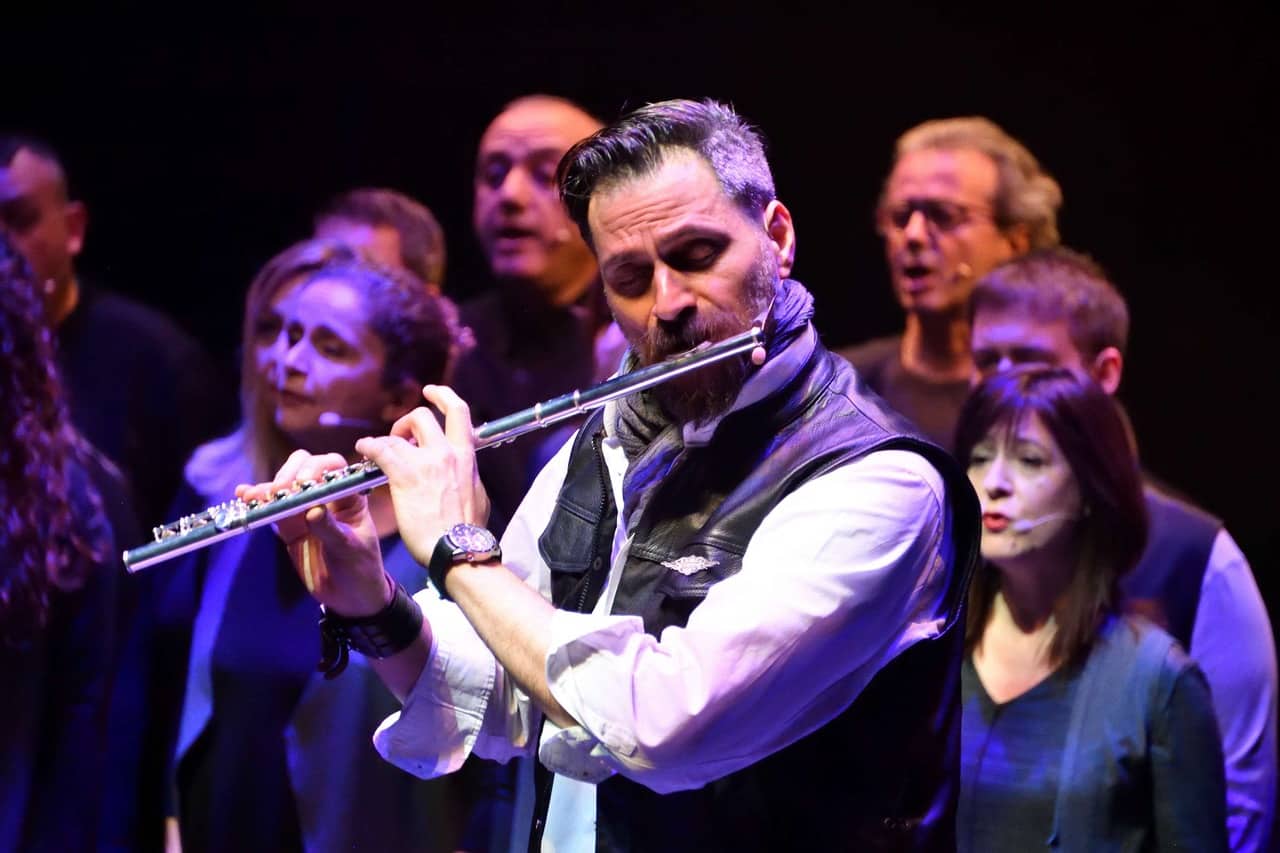
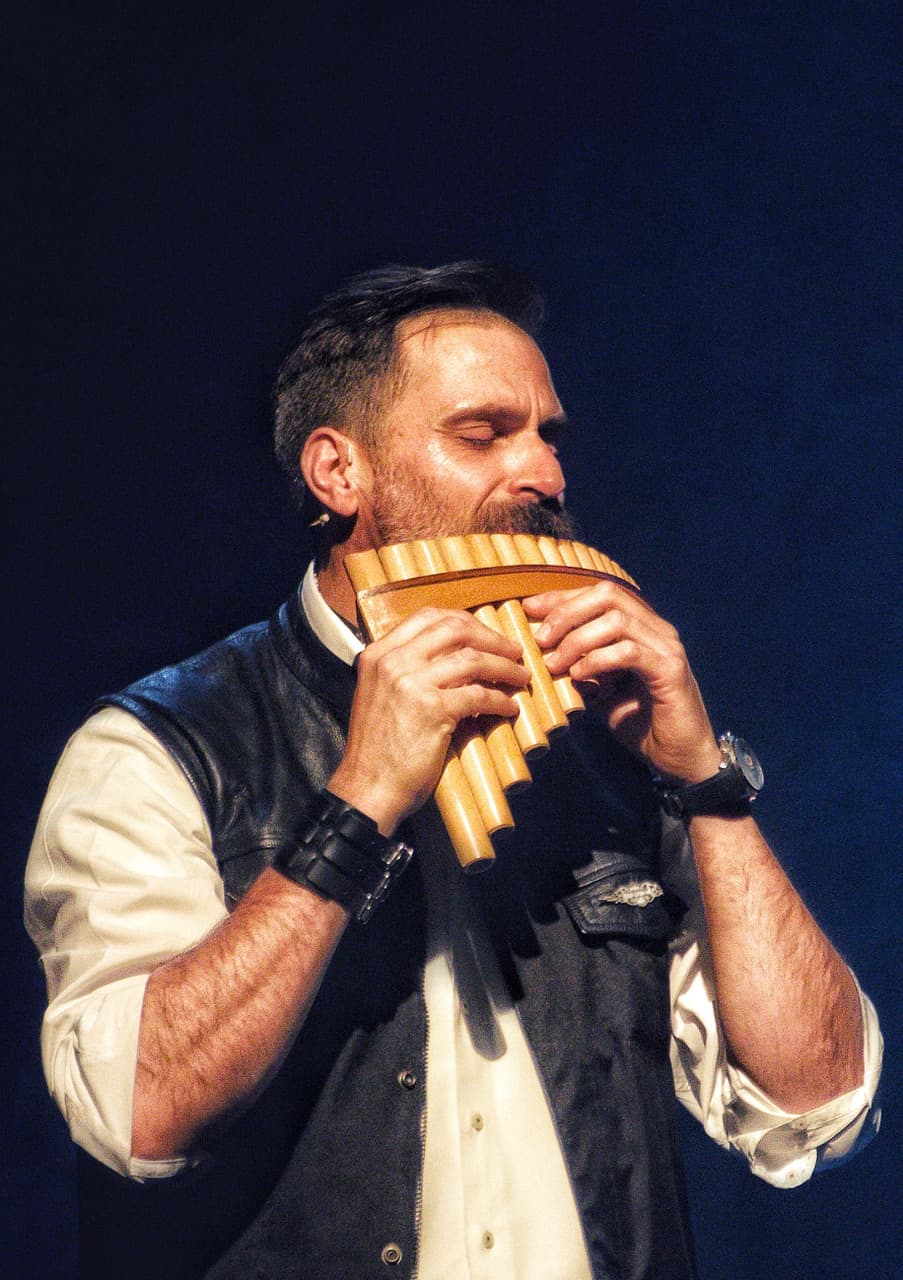
You have a very recognisable surname. Can we presume there is a connection to Michael Cacoyannis? If so, any memorable moments of him you would like to share?
I consider myself very lucky that Michael Cacoyannis, the director of major Hollywood movies like “Zorba the Greek” and “The Trojan Women”, apart from being a relative, has been my closest friend and mentor.
Although much older, he was the main reason I decided to study film scoring, so as to be able to collaborate with him. I wrote the music for three of his works, including his swansong, “Coriolanus”, a major production for the Athens Festival at the Acropolis amphitheatre in 2005 and 2006.
During Michael’s visits to Cyprus, I was the first person he would contact. We would spend hours together discovering new locations for his films and he would share with me stories, and gossip, about Hollywood stars.
Whenever I visited him in Greece, I was pampered due to his VIP status in the way of dinners, concerts and plays and through him I had the chance to meet important artists such as the actress Irene Papas, the choreographer Demetris Papaioannou and his close friend, the composer Mikis Theodorakis.
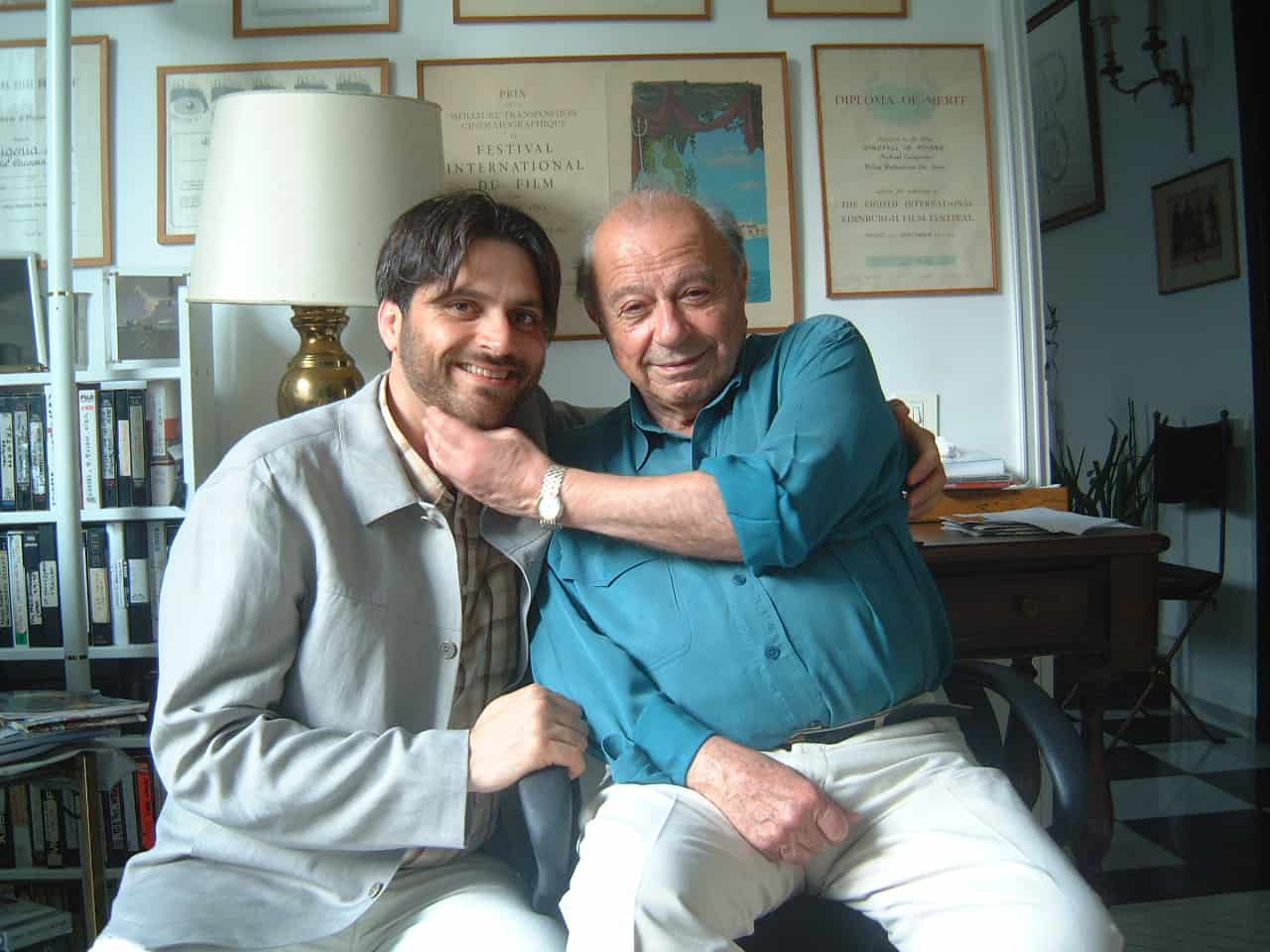
With the passing of Mikis Theodorakis, do you believe the next generation in Greece and Cyprus will give birth to another great artist like Miki who also integrated music, art and political consciousness into his work?
Theodorakis became synonymous with the struggles of the Greek nation many times in his life, and most importantly during the dark years of the Jounda. His great music empowered and comforted the pain of all Cypriots during the Turkish invasion.
Unfortunately, despite living in difficult times once again (due to the pandemic and the financial crisis) the new enemy is faceless and no artist, however good, can easily take the lead to inspire us overcome this messy situation.
Parakentro
Your non-profit cultural organisation Parakentro has produced numerous award winning CDs, DVDs, books and films featuring well known artists from around the world as well as concerts, films and cultural events. Could you tell us more about Parakentro and how it came to be?
Parakentro is a non-profit cultural organisation founded by poet Pambos Kouzalis and I in 2002. It started as a publishing house for poets, writers, musicians and directors. A “utopian” company where all rights and profits were given back to its creators.
We are proud that many of the books and films we released were granted 1st prizes at the national literature awards and in important film festivals.
In 2004, when I was appointed to teach at Mitsis School in Lemithou, a small village at an altitude of 1,200 meters, located on Troodos mountain, I fell in love with the view, the smell and the forests surrounding this place so I decided to look for a house in the area. Quite by chance I found a 19th century stone building that was for sale.
Soon I realised the potential that this place could provide housing our newly founded organisation. I started renovating it with the help of Pambos and a builder from the area. I also did the electrical installations, most of the piping, painting, concrete work and the plans for the 3rd and 4th flour extension where the studios are located.
By 2008 it was ready and for three years, up until the financial crisis began, we would invite important artists to give concerts there. Entry was free and dinner was offered to all spectators as many of them would travel from miles away.
No, we are not rich! Parakentro is 100% funded by our salaries as public teachers and by the sales of our works and compositions.
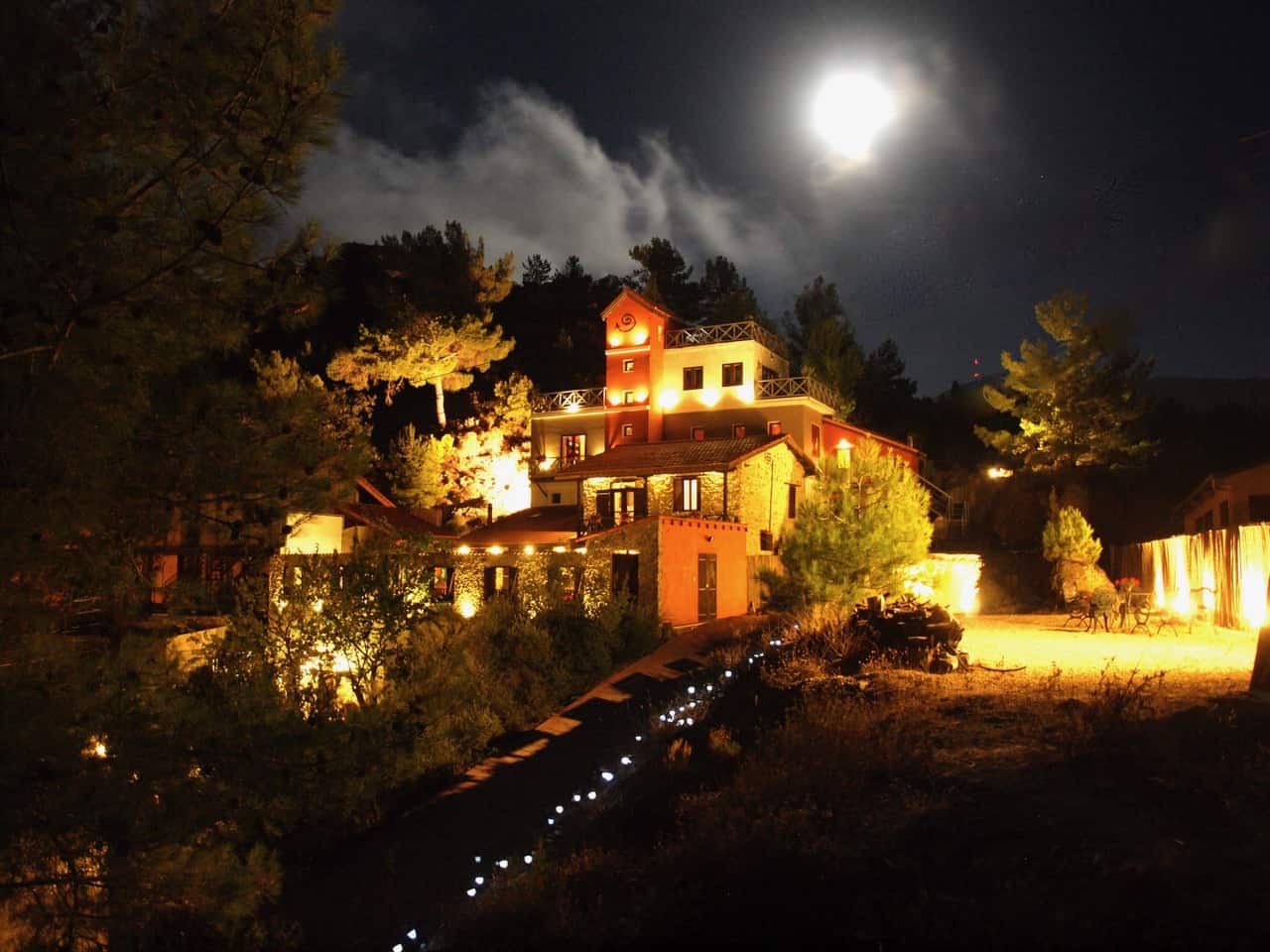
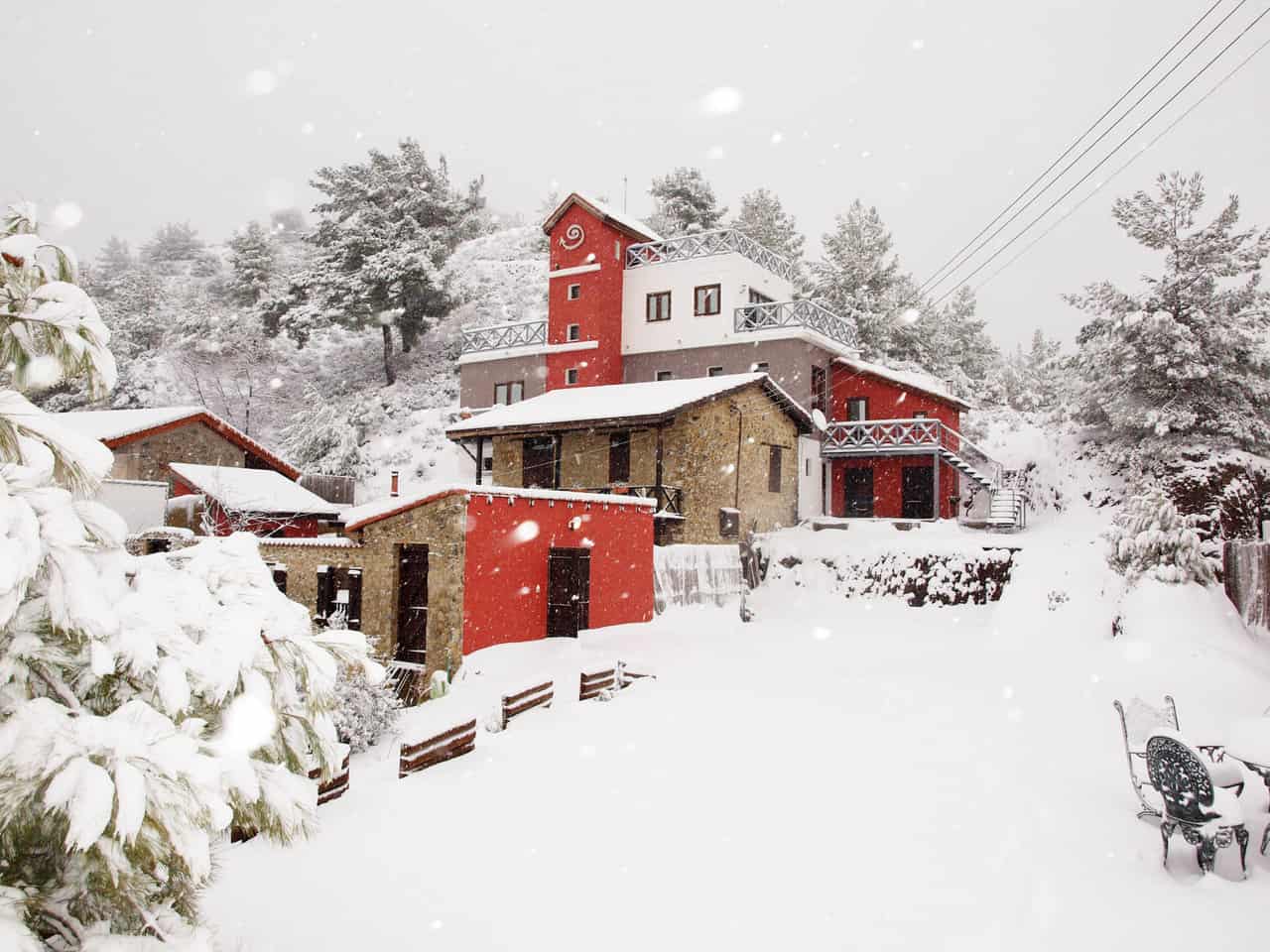
Which charities does Parakentro support – was it established to fund the promotion/ publishing young artists?
After the crisis the sales of CDs and DVD’s diminishing, we decided to focus on helping young talented singers and musicians through recordings and videoclips that I direct and produce for them, for free.
Most of the clips become viral on social media so they have the chance to share their talents without the need to participate in talent shows that often impose a psychological threat to their sensitive souls.
Career Highlights So Far
What is your favourite on-stage or performance moment?
I had the chance to present my work in many important theatres around the world such as the Her Majesty’s Theatre and the Drury Lane in West End, the Kremlin Palace in Russia, the House der Kulturen in Berlin, the Queens Collage in New York and the Acropolis Herodion Amphitheatre in Athens.
Yet I consider as a peak moment in my career my 2018 concert at the headquarters of UNESCO in Paris: a show called “Contes Musicaux” dedicated to my 30 years as a film composer. My preparations for it were journaled by BBC as part of their world service program “In the Studio”.
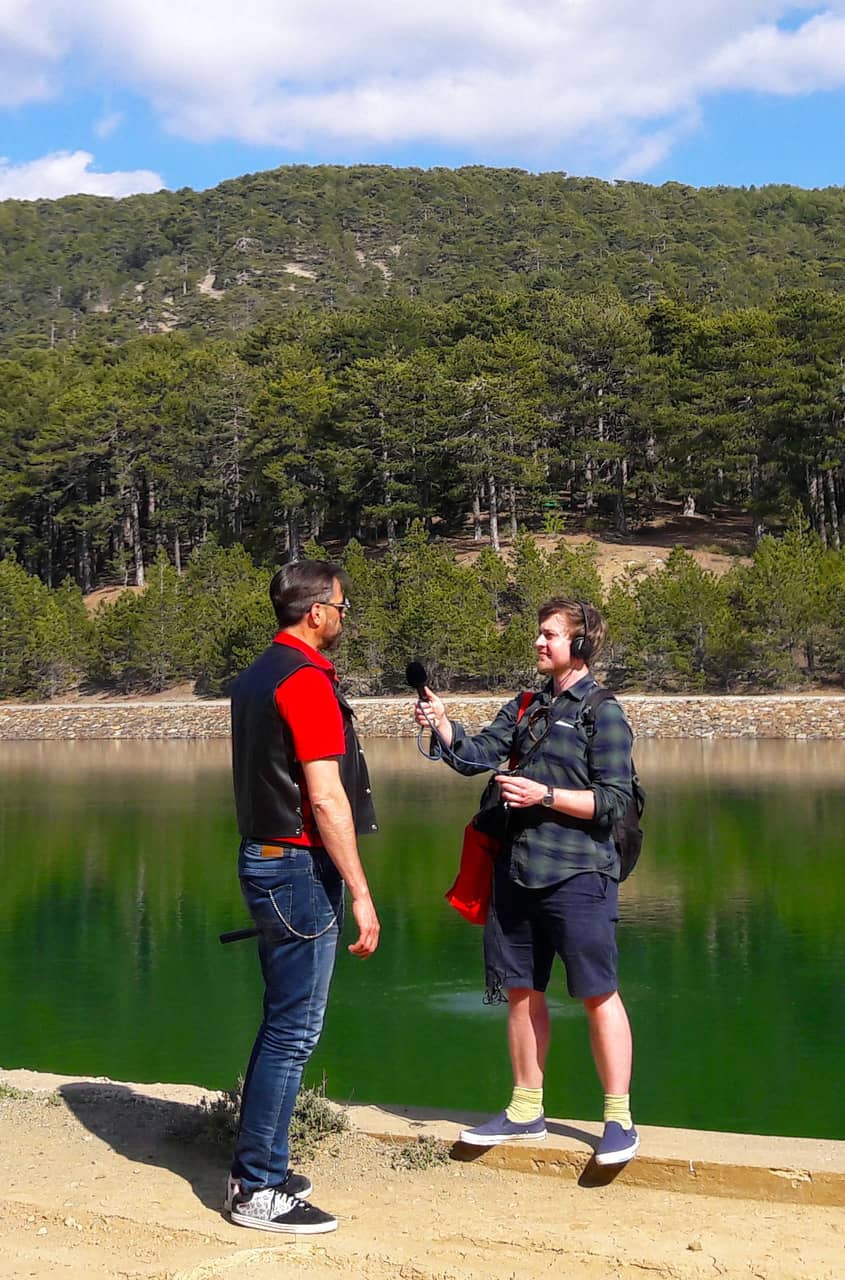
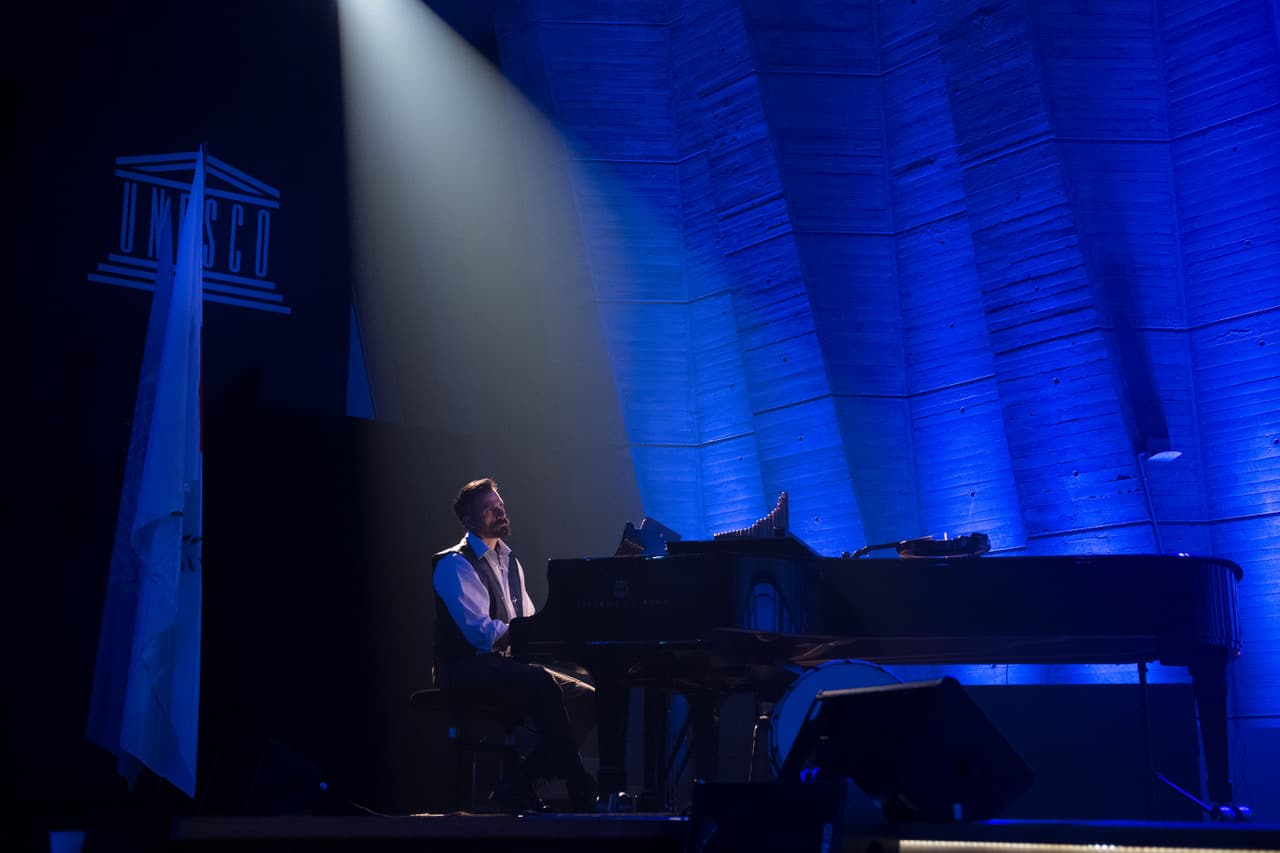
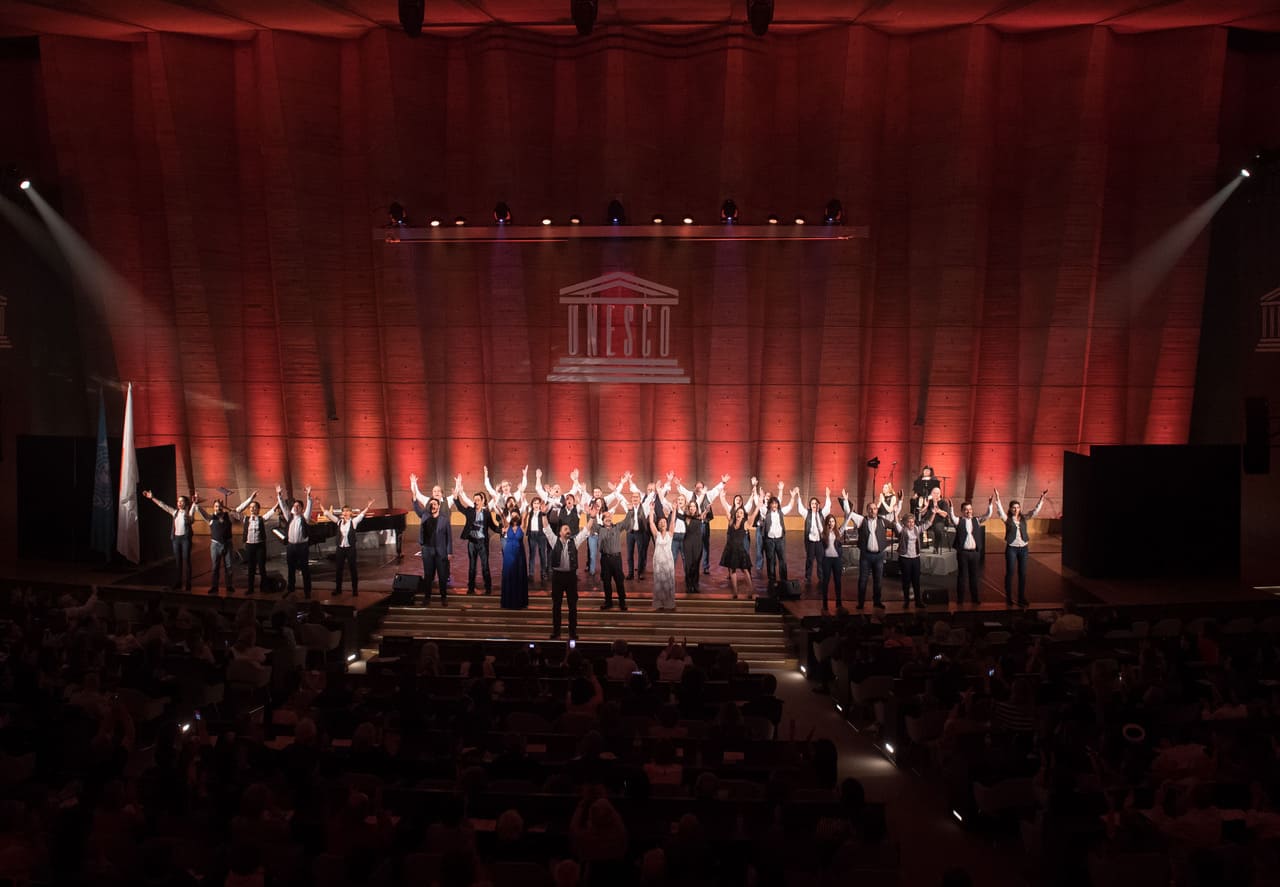
Who has been a favourite collaborator over the years and why?
I feel blessed that I had the chance to collaborate with some very important artists such as George Dalaras, Alkistis Protopsalti, Eleftheria Arvanitaki, Georges Moustaki, Nana Mouskouri, Mihalis hadjiyiannis, Yiannis Kotsiras, Johnny Logan and others. I love, respect and admire each one of them for their talents, low profile and humbleness.
Yet most important and inspiring I consider my work with talented teenagers. Because they are not yet formed artistically, the possibilities of expression are boundless and not restricted by commerciality.
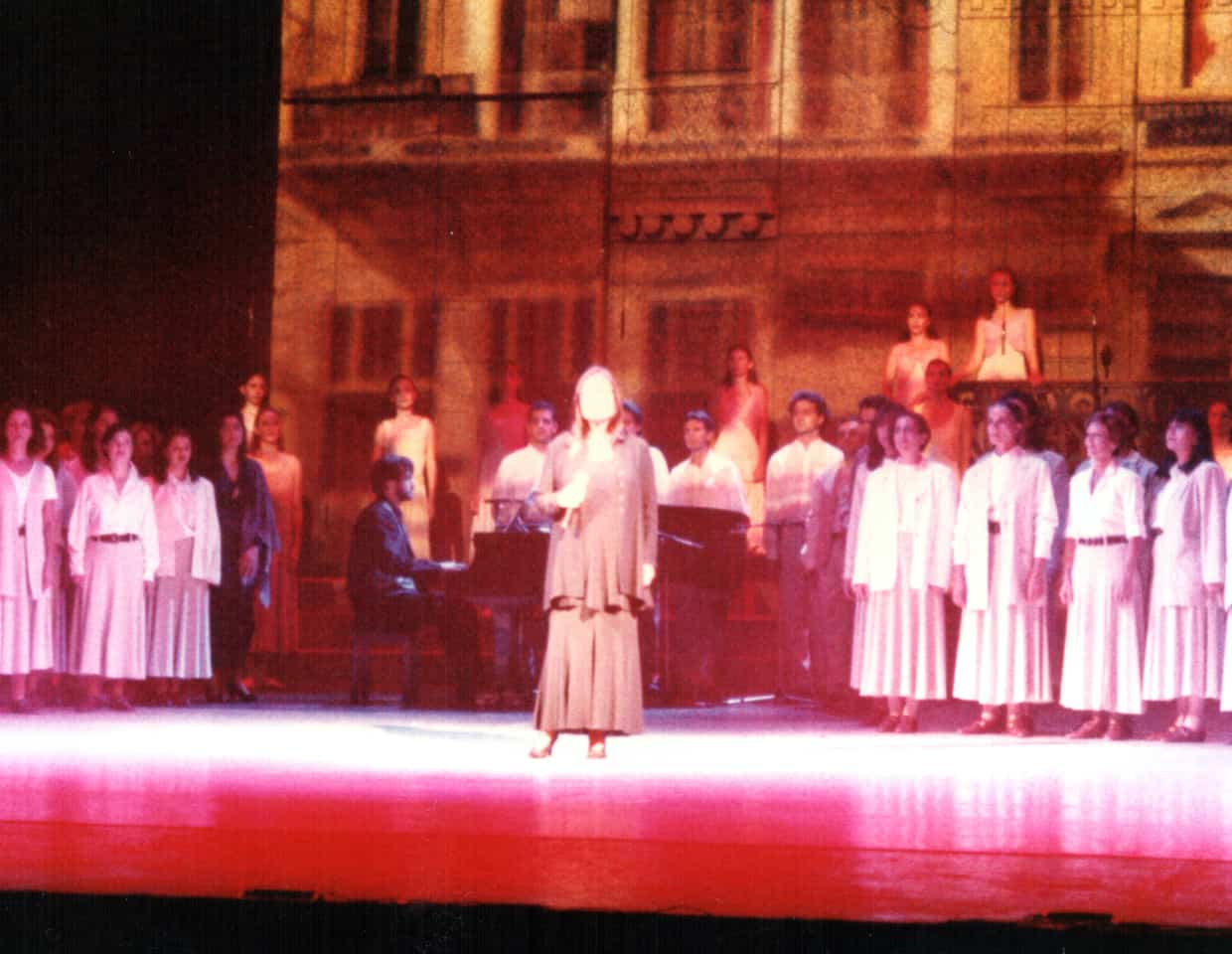
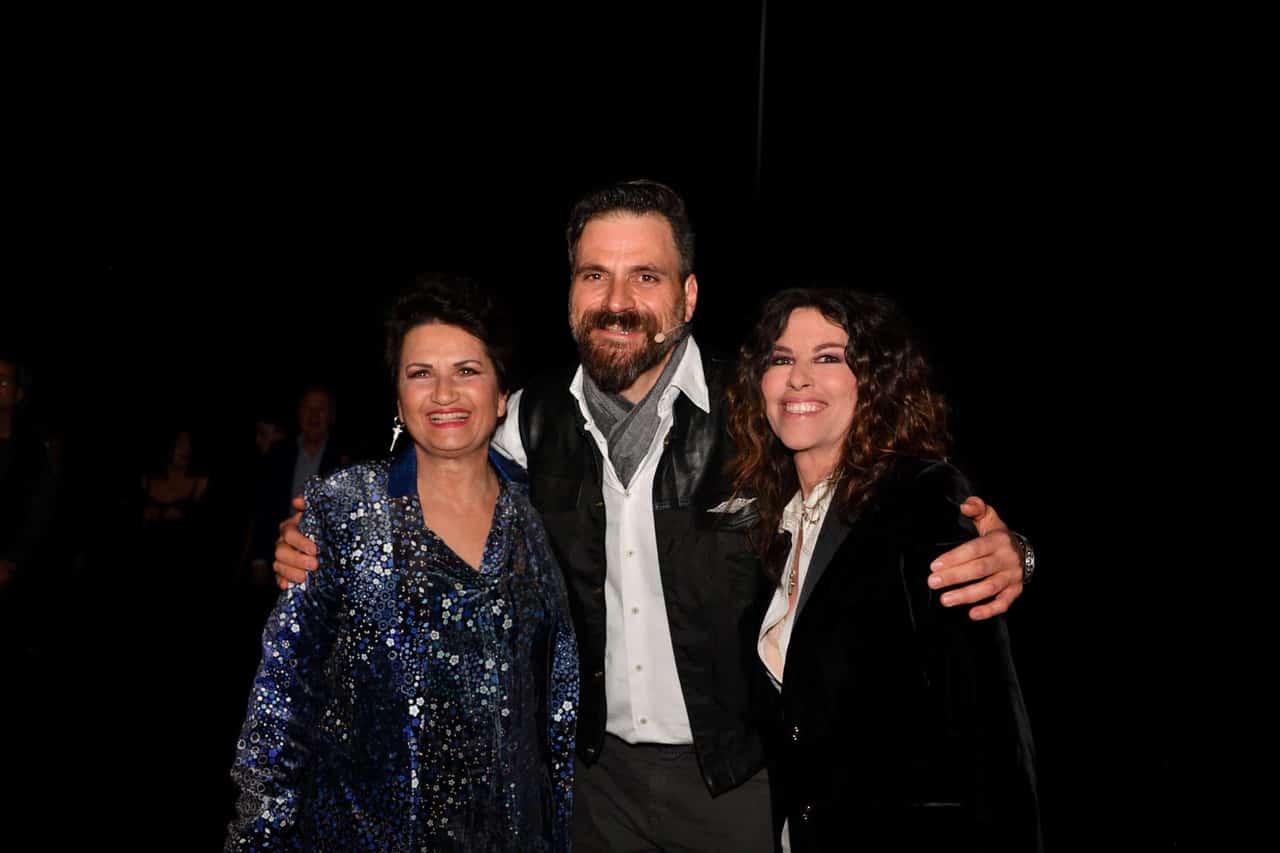
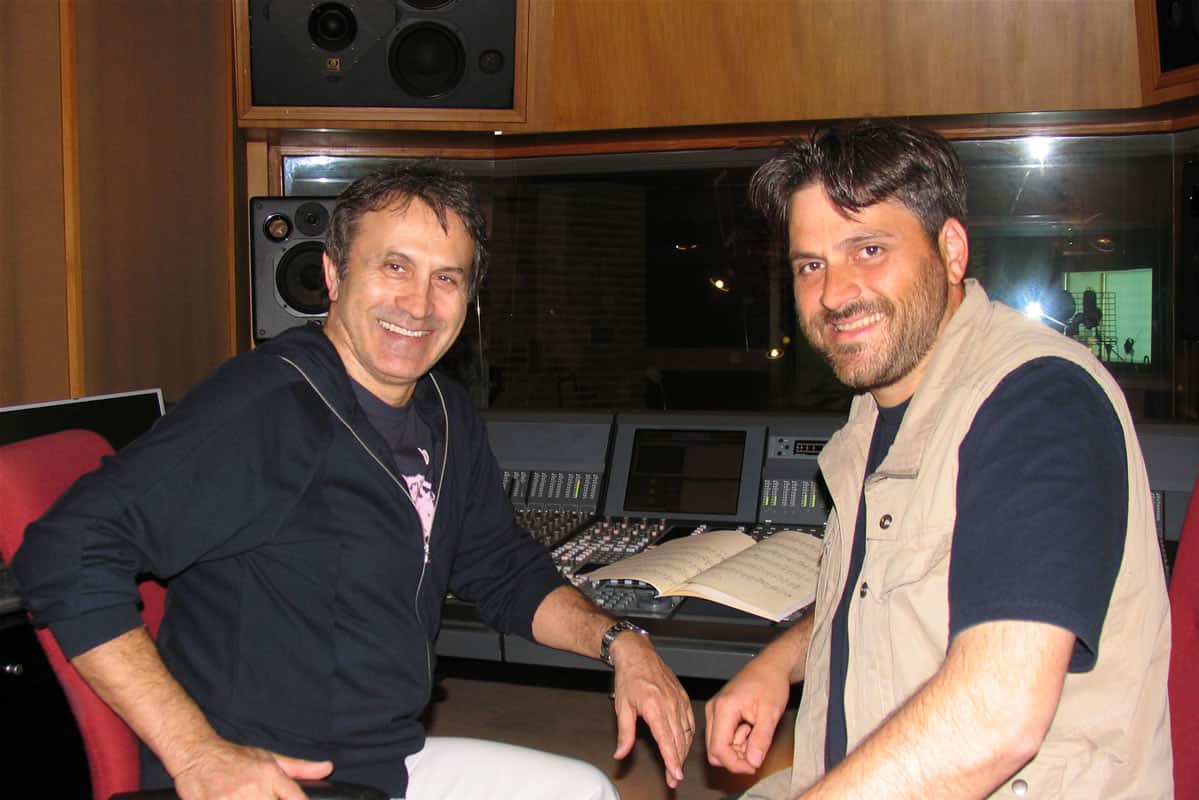
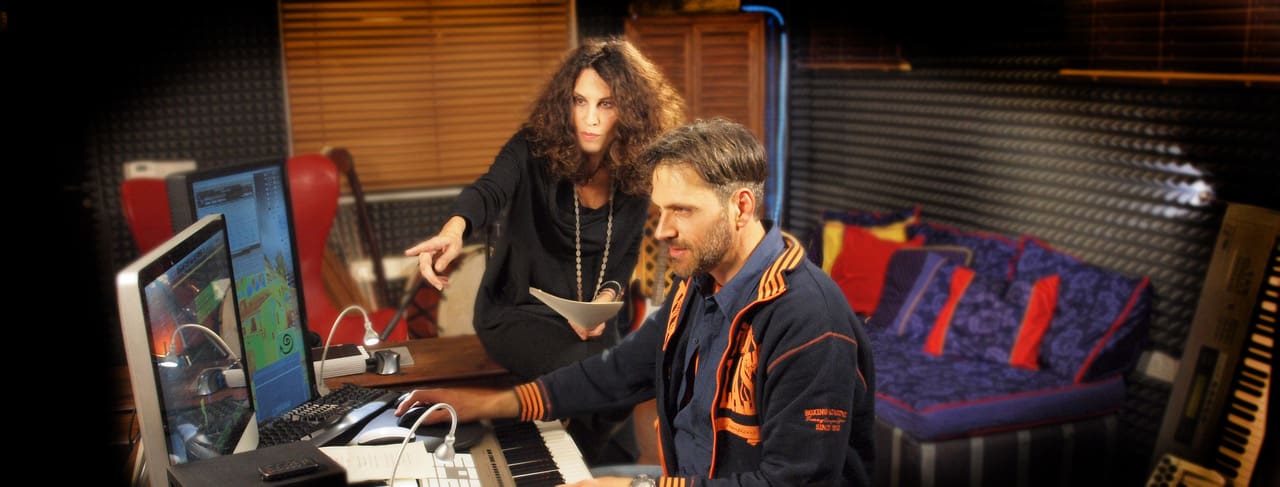
What advice would you give to young upcoming artists?
Honesty and humbleness! I often advise them to major in other fields as well, so as to keep music as a sacred, soul healing process and not a profession for their survival.
Creative Process and Inspiration
What is your process? How do you go about composing a piece or an entire score? What fuels your creativity?
100% of my inspiration comes from nature. I feel blessed that my studio is located at the edge of the Troodos Mountain. With nothing to distract my attention, I often meditate and get inspired by the forests that surround me. Many times I grab my bike and ride through them. There’s such an immense energy receiving that inspiration seems limitless.
When are you at your most creative?
Mostly during the early morning hours, as soon as I wake.
Have you ever dealt with ‘writer’s block?” If yes, what do you do to overcome it?
Not yet, and hope I never have to face one!
How do you know when a piece of music is finished?
An energy, somewhat electrical and out of this world floods my entire body with such intensity that I start to dance! That’s the sign that I… nailed it.
Your preference is studio work over live performances?
Let’s be honest. I am control freak! I like to be totally independent of time restrictions and deadlines so as to dedicate all time needed for a work to be completed in what I consider perfection. A successful live performance needs time for rehearsals in the theatre with the technicians, the sound engineers and the lighting designers being present at all times. Unless I can have this “luxury” I feel nervous.
Thank God, during the past two years I had three major collaborations with the National Theatre, something that allowed me to have all these requirements fulfilled to the maximum.
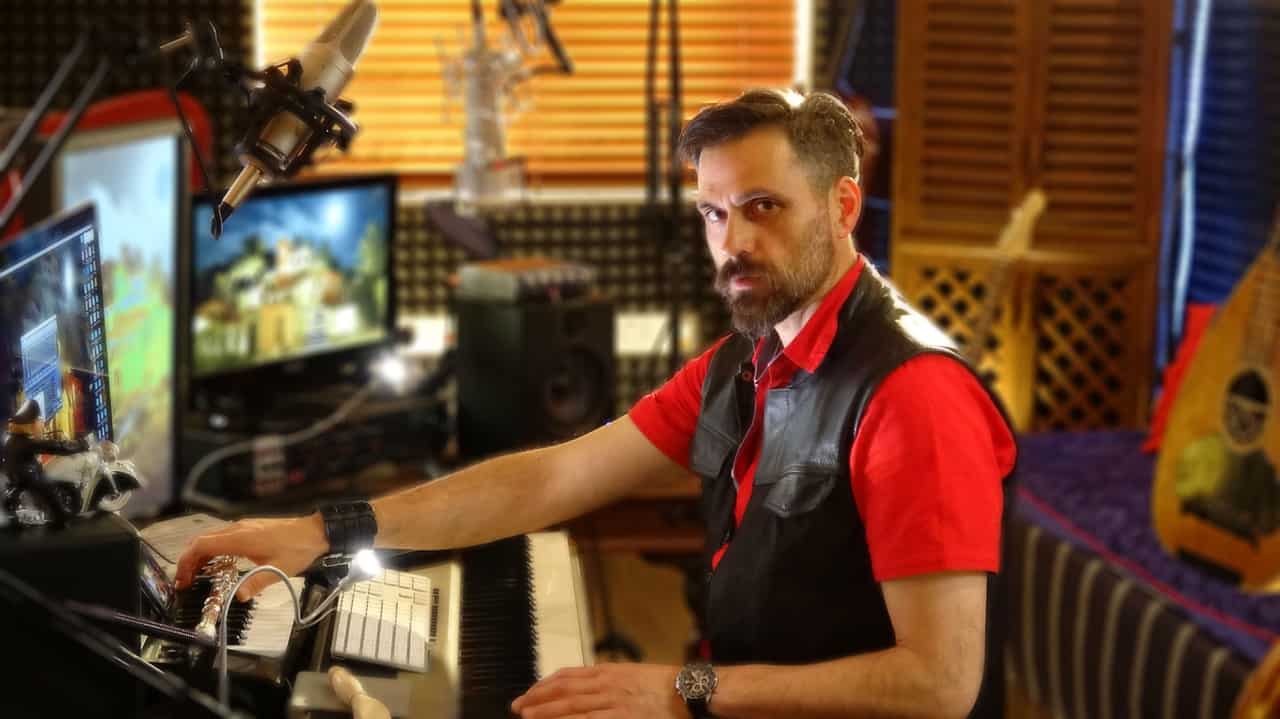
Junior Eurovision
You were the musical director for the 2008 Junior Eurovision Song Contest, can you tell us about this?
I felt very honoured that I was assigned to this post. Apart from the incidental music and music for the show performed during the intermission, I had to compose a song for UNICEF, featuring all the children of the competition. The purpose of “Hand in Hand” was to make people aware of the lack of clean water for the children of Africa.
It was a challenging experience yet I felt at home as I had the experience of the adult competition 10 years before that, when I had the chance to conduct the BBC orchestra in the 1998 Eurovision in Birmingham.
Current and Future Projects
What are you currently working on?
As the recent lockdowns restricted my face-to-face meetings with the artists with whom I collaborate, Vodafone (the telecommunications company) offered to sponsor a composition of mine featuring 8 artists from all over Cyprus using 5G technology.
That was an exciting experience resulting in an uplifting song with some of my most talented performers. The whole process was filmed and a documentary was produced that was released yesterday.
What upcoming projects are on the horizon?
There is a series of concerts planned for spring with a newly formed symphony orchestra, as well as a couple of soundtracks and album releases. Unfortunately with the ongoing pandemic often plans get postponed and sometimes cancelled.
Have you any plans to perform concerts overseas in particular Australia, Canada, the United States where there is a strong Hellenic diaspora?
I had the chance to perform often in the United States but never in Canada or Australia. I would feel very honoured to perform in Australia. I have close relatives there that I haven’t seen for years. Reuniting and performing for them and their friends will make me feel at home.
Do you have any time for personal life or is it mostly music and working? Do you like spending time away from your studio or do you become nervous if you are not close?
I dedicate most of my weekend time to my family and parents. On Sundays, after church, I usually take them for an excursion and sightseeing. I keep a portable sound and video studio with me at all times (computer, small keyboard, a bag of cameras and a drone) so every place can become a workplace for me.
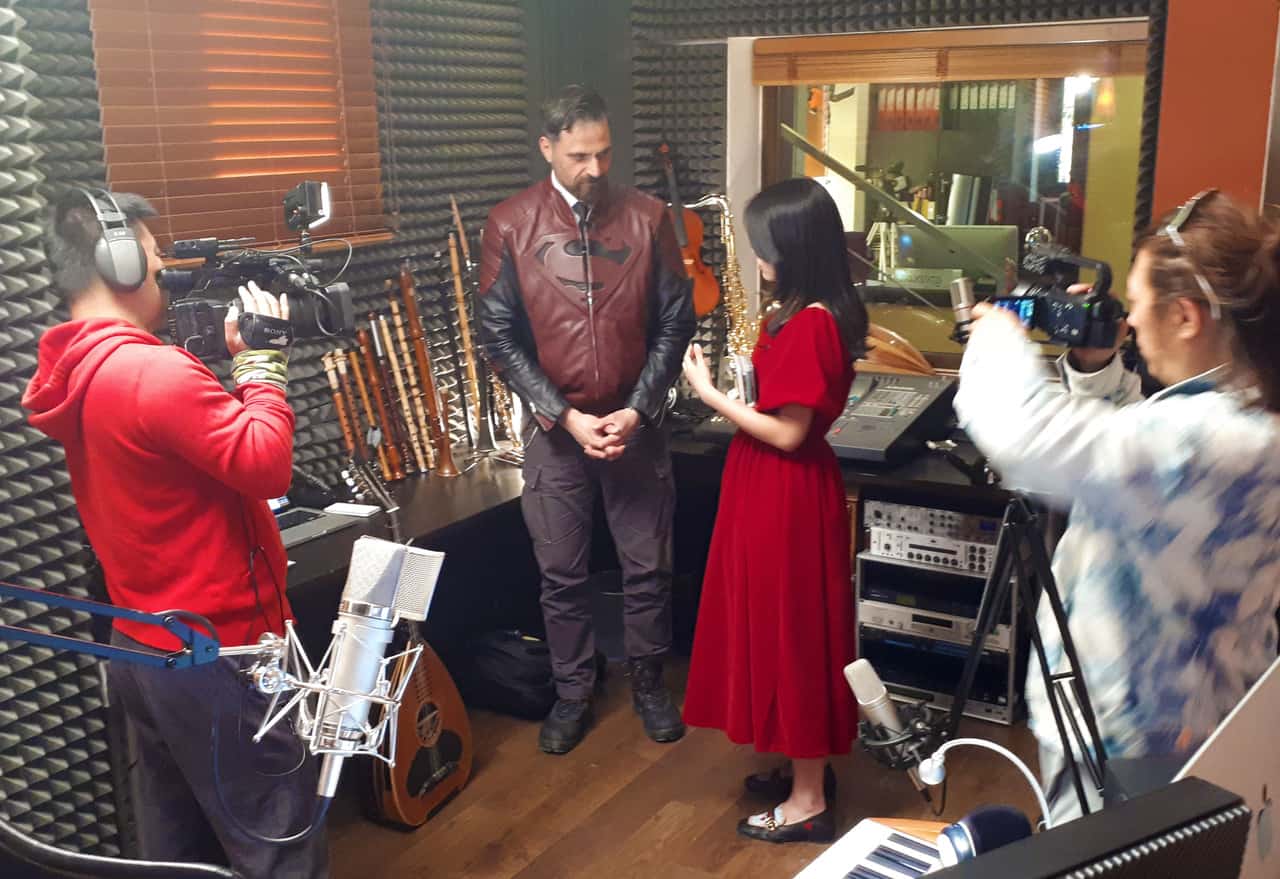
Links
Read also Her Voice: Greek Women and Their Friends

